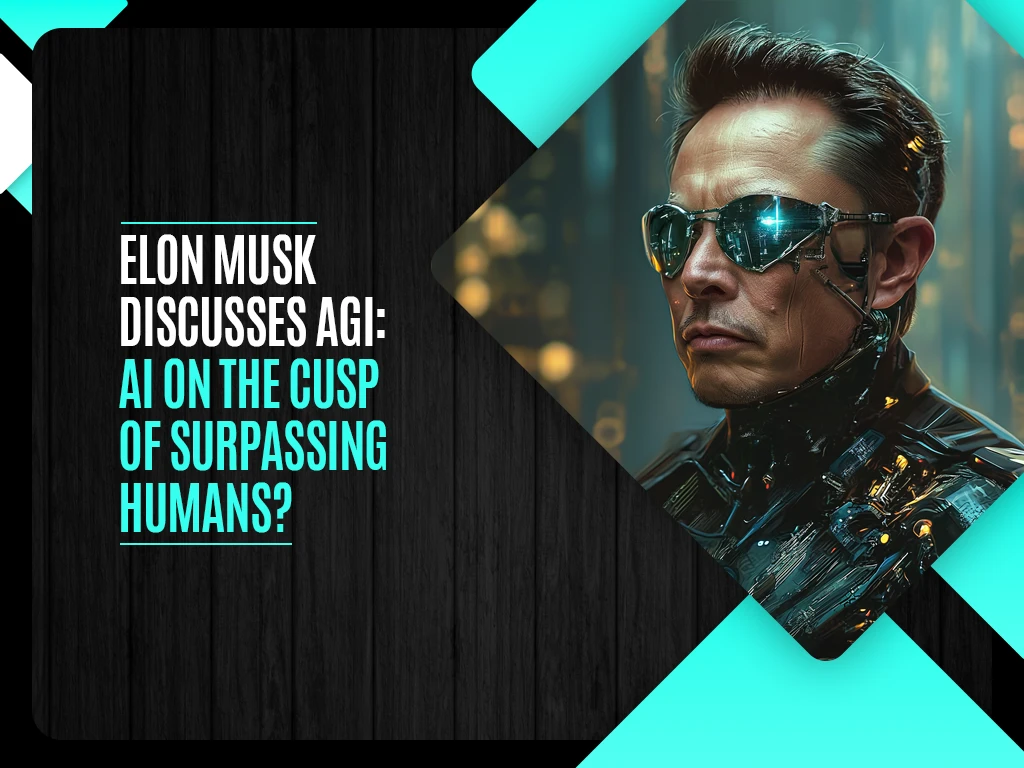Elon Musk discusses AGI: AI on the Cusp of Surpassing Humans?

13th March, New Jersey: Elon Musk, the ever-outspoken billionaire and owner of X (formerly Twitter), has reignited the debate on Artificial Intelligence (AI) with a bold prediction. He believes AI will surpass the intelligence of any individual human by next year, and achieve a collective intelligence exceeding all of humanity by 2029. This claim comes on the heels of a discussion between podcaster Joe Rogan and futurist Ray Kurzweil, who projected human-level AI by 2029.
The statement by Elon Musk grabs headlines, the concept of Artificial General Intelligence (AGI) remains shrouded in mystery. AGI refers to a hypothetical stage where AI transcends its current limitations and achieves human-like intelligence. This intelligence wouldn’t be confined to specific tasks, but rather encompass the ability to learn, reason, solve problems, and adapt across various domains, just like humans.
The rise of powerful language models like ChatGPT and Gemini has fueled conversations about AGI. However, experts hold diverse opinions on its proximity and potential impact.
The Skeptics: Why AGI Might Not Be Around the Corner
Meta’s Chief AI scientist, Yann LeCun, expresses reservations about the current trajectory leading to AGI. He views large language models (LLMs) as impressive tools, but not stepping stones to human-level intelligence. LLMs, according to him, lack real-world understanding, require vast amounts of data for limited results, and struggle with genuine reasoning and planning.
Sundar Pichai, CEO of Google, takes a more pragmatic approach. He downplays the significance of achieving true AGI, emphasizing the undeniable capabilities emerging AI systems will possess. He argues that regardless of reaching AGI, the potential for immense benefit and harm exists with these powerful tools. Disinformation campaigns could be amplified at an unprecedented scale, highlighting the need for responsible development.
The Optimists: A Brighter Future with AGI
On the other side of the spectrum, Sam Altman, founder of OpenAI, champions the potential benefits of AGI. He envisions a world transformed by the democratization of intelligence, where advancements become more accessible and impactful. The potential for progress across various fields, as promised by science fiction for decades, might finally become a reality.
The Uncertainty: Challenges and Considerations
The debate surrounding AGI goes beyond technological feasibility. Ethical considerations and potential risks must be addressed. Biases embedded in training data can lead to discriminatory AI systems. The power dynamics of human-AI interaction and the potential for job displacement are also crucial concerns.
The Road Ahead: Responsible Development and Collaboration
The path towards responsible AI development necessitates a collaborative effort. Open communication between researchers, policymakers, and the public is essential. Clear guidelines and regulations are needed to mitigate risks and ensure AI serves humanity’s best interests.
Conclusion: A Race Towards the Future
Whether AGI arrives next year, in 2029, or even at all, remains to be seen. However, the rapid advancements in AI demand proactive measures. By fostering open discussions, prioritizing ethical development, and preparing for the potential impacts, we can navigate the exciting yet uncertain future of AI together.
This news has been sourced.

